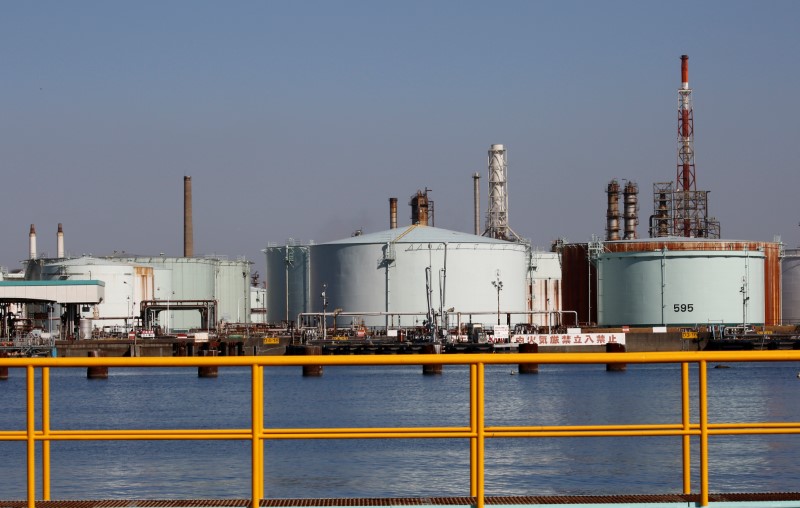Investing.com -- Oil prices rose Friday, heading towards their second consecutive week of gains on signs of tightening U.S. supply and improving fuel demand in the world’s largest oil consumer.
By 09:15 ET (13:15 GMT), U.S. crude futures traded 1.4% higher at $72.82 a barrel, while the Brent contract rose 1.1% to $77.10 a barrel.
Both benchmarks are on course for gains of close to 2% this week on expectations of tighter U.S. supplies as the travel-heavy summer season approaches, boosted by an unexpected, hefty fall in U.S. crude oil inventories last week.
U.S. commercial crude oil inventories fell by 12.5 million barrels a day, the largest weekly decline since November, while ING noted that “the 4-week average for implied gasoline demand remains just above 9MMbbls/d, which is the highest post-COVID level seen for this time of year.”
The U.S. Transportation Security Administration screened just over 2.6 million passengers on Thursday, the highest number since the COVID-19 pandemic, with the Federal Aviation Administration estimated more than 51,000 flights took place Thursday, the highest number during the busy Memorial Day travel period.
Adding to the optimism is a report by Reuters indicating that congressional Republicans and the White House are very close to agreeing on a deal to lift the U.S. debt ceiling before the June 1 deadline, averting a catastrophic default that would severely hit global economic activity, and thus crude demand.
That said, gains are limited amid uncertainty over what a group of top producers will decide in terms of future output at their next meeting on June 4.
Saudi Arabian Energy Minister Prince Abdulaziz bin Salman warned short sellers to "watch out" earlier in the week, raising expectations that Saudi Arabia, the de facto leader of the OPEC+ cartel, would seek another production cut in order to boost prices.
In April, OPEC+ surprised the market by announcing a 1.7 million-barrel-per-day cut, on top of a prior undertaking to shed 2 million barrels daily.
Oil prices jumped sharply on that announcement, but crude prices only went up for two weeks, before turning lower over four weeks, erasing some 15%.
Optimism that the group would seek another price boost by cutting output again was hit Thursday after Russian Deputy Prime Minister Alexander Novak said he didn’t expect the group to introduce any new steps next month.
Additionally, the Federal Reserve's preferred consumer inflation measure unexpectedly accelerated in April, data showed Friday, adding to the likelihood that the U.S. central bank keeps interest rates higher for longer, weighing on future economic activity.
